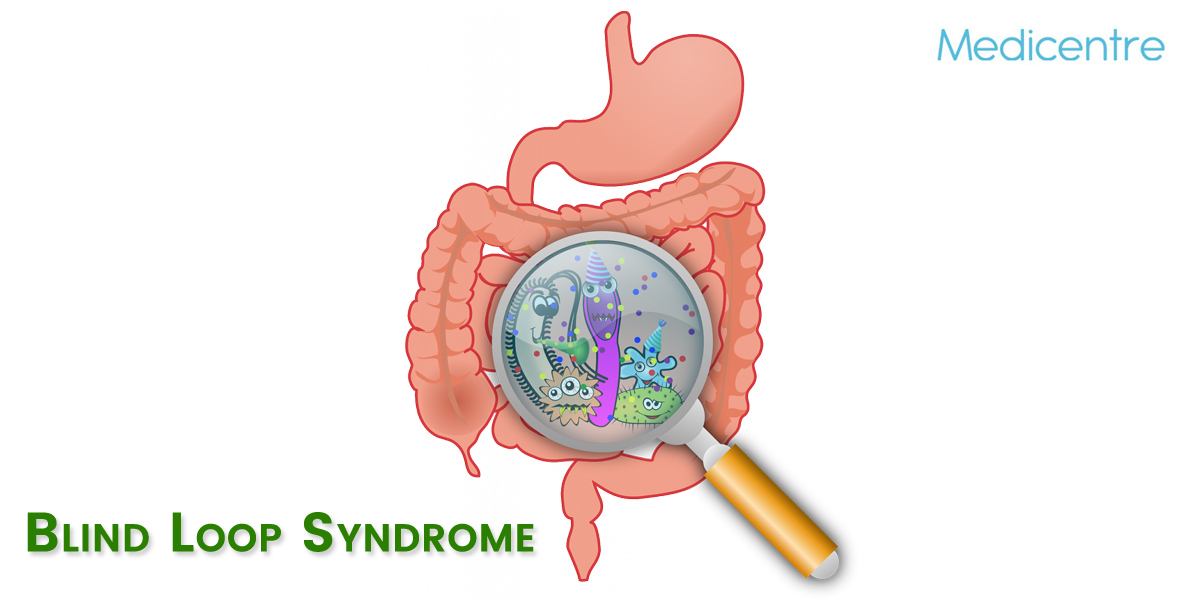Blind Loop Syndrome
Our digestive system breaks down the food we eat so our body can use it for fuel. Food moves from our stomach into our intestines. Here, nutrients are absorbed. The surplus food is pushed into the colon and leaves the body as waste.
In case of blind loop syndrome, food can not follow the normal digestive route. As an alternative, it bypasses a part of our intestine.

What are the Causes of Blind Loop Syndrome
Blind loop syndrome often occurs due to an overgrowth of bacteria in the intestine. It forces food to route around it. Due to the "blind loop" that is made, the small intestine becomes shorter than normal. The intestines not be able to properly absorb nutrients. They are then passed out of your body in waste.
Blind loop syndrome mostly happens as a complication of abdominal surgery like bowel-shortening surgery for obesity. In this surgery, portion of the intestine is purposely bypassed. Digestive problems may also cause blind loop syndrome
What are the Risk Factors of Blind Loop Syndrome
- Gastric surgery for obesity
- Diabetes
- Any structural defect in the small intestine
- Any injury to the small intestine
- An abnormal passageway between two segments of bowel
- Crohn's disease,
- Past radiation therapy to the abdomen
- Diverticulosis of the small intestine
Factors that may increase your risk of blind loop syndrome include:
Complications
A blind loop can cause increasing problems, like:
- Poor absorption of fats
- Osteoporosis
- Vitamin B-12 deficiency
- Damage to the intestinal lining
- Kidney stones
What are the Symptoms of Blind Loop Syndrome
One of the prominent symptoms of blind loop syndrome is unexplained weight loss. This happens when your whole intestine may not be able to digest food and absorb nutrients. When your body doesn’t get the nutrients and fat it requires, it results in weight loss.
When bacteria overgrowth happens in your intestines, bacteria are also carried via the bloodstream and body. This bacterial infection may cause:
- A Fever
- Joint pain like in arthritis
- Rashes or red bumps on the skin
- Inflamed tendons
- Pain in muscles
• Poor absorption of nutrients and poor nutrition may cause a number of symptoms, like:
- Repeated diarrhea
- Nausea or vomiting
- Swelling in the abdomen due to a buildup of fluid
- Pain and cramping in your abdomen
- Stools that looks loose and fatty
- Fatigue
- Gas and bloating
Diagnosis
Your doctor will ask regarding your symptoms, your medical, surgical, and family history. He/ she will recommend tests to test for nutrient absorption, anemia, or to find out other conditions. Tests include:
- Blood tests to check for infections and nutrition status
- Breath tests to find for bacterial overgrowth
- Tests to check organ function
- Test to check for inflammation in the body
- Test of stool for fecal fat, stool culture, parasites, white blood cells treatment
Your doctor can treat blind loop syndrome. You will possibly take antibiotics. A short course of corticosteroids to reduce inflammation can also help control symptoms.
Sometimes you need surgery to eliminate the infected area. If obesity surgery is the reason of blind loop syndrome, your surgeon may perform another operation to correct the problem.